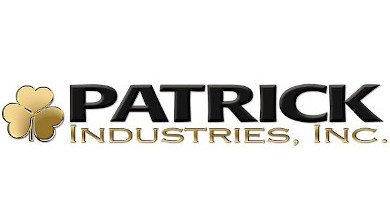Patrick Industries announced Tuesday that it intends to offer $225 million in convertible senior notes (bonds) in a private placement to qualified institutional buyers. The notes would come due in 2028.
Additionally, the company said it expects to grant those initial purchasers the option to buy up to an additional $33.75 million aggregate principal amount of the notes (bonds).
The company said it intends to use a portion of the net proceeds from the offering to pay the cost of the convertible note hedge transactions described below (after such cost is partially offset by the proceeds to the company from the sale of the warrant transactions described below). The company said it expects to use the remaining net proceeds from the offering for general corporate purposes, including acquisitions. Pending these uses, the company said it intends to use the remainder of the net proceeds from the offering to repay a portion of the amounts due under its current credit facility.
The notes will be senior unsecured obligations of the company. The notes will be guaranteed on a senior unsecured basis by each of the company’s current and future wholly owned domestic subsidiaries that guarantee the company’s borrowings under its senior secured credit facility and certain of its outstanding existing senior notes.
The notes will mature on Dec. 1, 2028, unless earlier converted, redeemed or repurchased. The notes are expected to pay interest semiannually in arrears.
The company will satisfy any conversion by paying cash up to the aggregate principal amount of the notes to be converted and by paying or delivering, as the case may be, cash, shares of the company’s common stock or a combination of cash and shares of the company’s common stock, at its election, in respect of the remainder, if any, of its conversion obligation in excess of the aggregate principal amount of the notes being converted.
Prior to June 1, 2028, the notes may be converted at the option of the holders only upon the occurrence of specified events and during certain periods, and thereafter until the close of business on the second scheduled trading day immediately preceding the maturity date, the notes may be converted at any time.
The company said it may redeem for cash all or any portion of the notes, at its option, on or after Dec. 5, 2025, if the closing sale price per share of the company’s common stock exceeds 130 percent of the conversion price of the notes for a specified period of time. The redemption price will be equal to 100 percent of the principal amount of the notes to be redeemed, plus accrued and unpaid interest, if any, to, but excluding, the redemption date. The interest rate, the initial conversion rate and the other terms of the notes will be determined upon pricing of the offering by negotiations between the company and the initial purchasers of the notes.
In connection with the offering, the company said it expects to enter into privately negotiated convertible note hedge transactions with one or more of the initial purchasers of the notes or affiliates thereof and/or other financial institutions (in this capacity, the “option counterparties”). The company also said it expects to enter into warrant transactions with the option counterparties. The convertible note hedge transactions are expected generally to reduce potential dilution to the company’s common stock upon any conversion of the notes and/or offset any cash payments the company is required to make in excess of the principal amount of converted notes, as the case may be. However, the warrant transactions could separately have a dilutive effect to the extent that the market value per share of the company’s common stock exceeds upon expiration the applicable strike price of the warrants.
In connection with establishing their initial hedges of the convertible note hedge and warrant transactions, the option counterparties or their respective affiliates expect to purchase shares of the company’s common stock and/or enter into various derivative transactions with respect to the company’s common stock concurrently with or shortly after the pricing of the notes.
This activity could increase (or reduce the size of any decrease in) the market price of the company’s common stock or the notes at that time.
In addition, the option counterparties or their respective affiliates may modify their hedge positions by entering into or unwinding various derivatives with respect to the company’s common stock and/or purchasing or selling the company’s common stock or other securities of the company in secondary market transactions following the pricing of the notes and prior to the maturity of the notes (and are likely to do so during any observation period related to a conversion of the notes).
The company said this activity could also cause or avoid an increase or a decrease in the market price of the company’s common stock or the notes, which could affect the ability of noteholders to convert the notes and, to the extent the activity occurs during any observation period related to a conversion of the notes, it could affect the number of shares and value of the consideration that a noteholder will receive upon conversion of the notes.
If the initial purchasers exercise their option to purchase additional notes, the company expects to sell additional warrants to the option counterparties and use a portion of the net proceeds from the sale of the additional notes, together with the proceeds from the sale of the additional warrants, to enter into additional convertible note hedge transactions with the option counterparties. Any remaining proceeds will be used for the purposes as described above.
